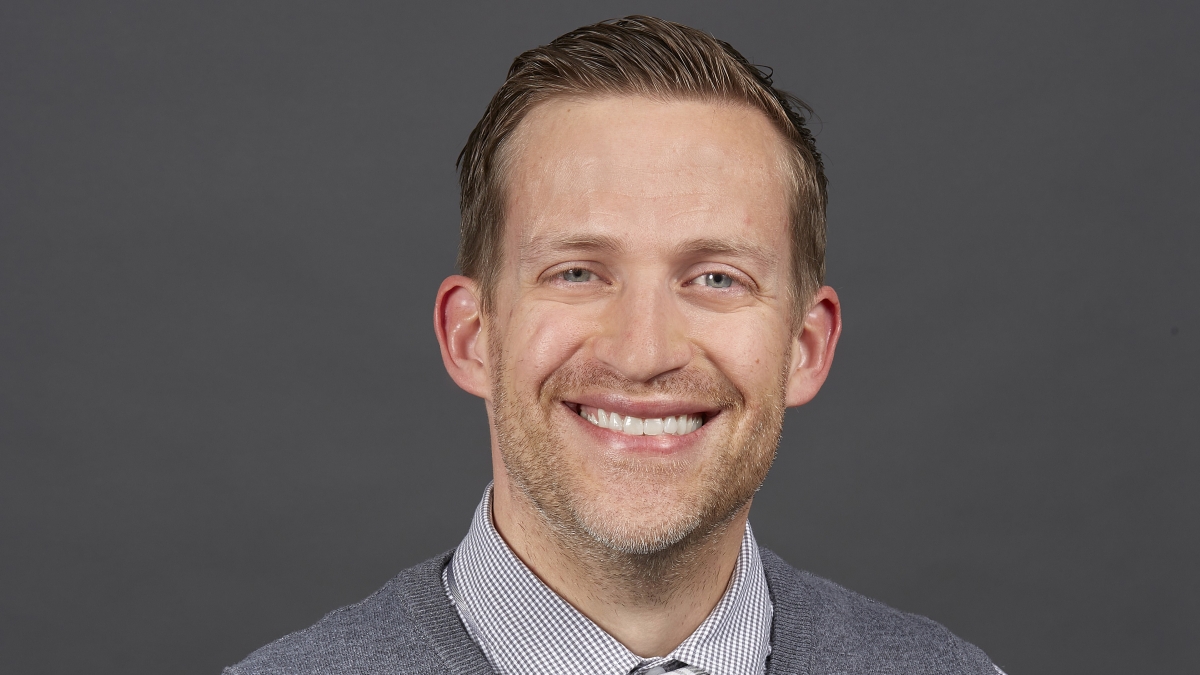ASU and Governor's Office co-create programs for substance-abuse prevention, job training

College of Health Solutions Clinical Associate Professor Matthew Martin leads a team that will work with the Governor's Office of Youth, Faith and Family. Courtesy photo
Arizonans will have better access to substance-use prevention programs and job training thanks in part to a pair of collaborations between the College of Health Solutions and the Governor’s Office of Youth, Faith and Family.
The state’s youths and young adults will have more options for substance-use prevention programs due to a $6.2 million, federally funded grant and the partnership. The job training collaboration is part of a grant totaling $5.9 million from the U.S. Department of Labor awarded to the Arizona Department of Economic Security.
College of Health Solutions Clinical Associate Professor Matthew Martin heads the teams that will lead these efforts. Martin is also part of the college’s Safety Net Advancement Center, which works with health systems, community partners and health care payers to develop and implement evidence-based approaches to improve access, equity and population health.
“I’ve been trying to develop a partnership with the Governor’s Office for a few years now,” Martin said. “I was finally able to make contact and proposed we work together.”
About the substance-use prevention learning collaborative
The $6.2 million grant — in $1.25 million installments over five years — will fund the Arizona Prevention and Well-being Improvement Collaborative. Martin said it will help more community organizations provide evidence-based practices for substance-use prevention and mental health promotion.
The team will target organizations that have not participated in this type of training before.
“It could be organizations like a Boys & Girls Club or YMCA,” Martin said. “Organizations that have a clear mission for benefiting the community, but they haven’t been able to be exposed to prevention training. There is a lot of great prevention training out there. We’re just making it easier for them to participate.”
The money comes from the Strategic Prevention Framework – Partnerships for Success (SPF–PFS) grant authorized by the U.S. Department of Health and Human Services and distributed through the Substance Abuse and Mental Health Services Administration.
The funds are awarded to states who, in turn, work with organizations with expertise in that area.
“This funding is critical to expanding substance-misuse prevention efforts for youth and young adults in communities across the State,” Tonya Hamilton, CEO of the Governor’s Office of Youth, Faith and Family, said in a statement. “I look forward to seeing the impact of these dollars to enhance protective factors and reduce risk factors by empowering community cohesion and working to achieve Gov. (Katie) Hobbs’ vision of an Arizona for everyone.”
Over the course of the grant, Martin’s team will recruit about 30 community organizations from across the state. They’ll give priority to groups serving youth, young adults or minority populations.
“They’re going to participate in a peer-learning collaborative for five years,” Martin said. “Over that time, they’ll be joining quarterly meetings and learning from each other how to implement this evidence-based practice.”
About the Workforce Innovation and Opportunity Act
The second partnership will help Arizonans in underserved communities become more marketable in the job market.
Like the substance-use prevention grant, the funds to support job training come from the federal government. The Workforce Innovation and Opportunity Act, Governor’s Discretionary Fund grant is awarded through the Arizona Department of Economic Security.
The Governor's Office of Youth, Faith and Family works with organizations across the state to address workforce needs.
Some 16 organizations statewide, including higher education institutions such as Grand Canyon and Northern Arizona universities, will receive funds to expand training programs. Martin said ASU’s role will be to help support and evaluate those programs.
“We’ll do some interesting analysis on it,” Martin said. “We’re going to calculate the return on investment so we can understand that for every dollar we put into the program, this is the value or amount that comes back.”
But the evaluation won’t be contained to dollars and cents, he said.
“We’re also going to calculate the needs of these communities,” Martin said. “It can be hard to understand what they need when it comes to better training opportunities and workplace development. We’re going to create a new model that helps us understand their needs.”
Martin’s team will also look at the proximity of the training programs to the communities that need them most.
“That should help, if the Governor’s Office wants to continue this kind of program,” he said. “Hopefully we can answer that question and help them have a more targeted approach so they can identify, specifically, those communities that have the greatest need and invest the funds directly into those communities.”
More University news

ASU community exceeds goal, raises $835K for Valley of the Sun United Way
The Arizona State University community stepped up and raised over $835,266 for the Valley of the Sun United Way — exceeding the $800,000 goal for 2024.Of the total, $802,192.17 was raised through…

ASU launches online ocean futures undergraduate degrees
Our oceans make up three quarters of the planet’s surface and contain most of its biodiversity. Due to rapid and global changes, they are endangered — making more urgent a deeper knowledge of ocean…

ASU public affairs graduate programs rise to No. 11 in nation in US News & World Report’s 2025 rankings
Arizona State University rose to No. 11 nationwide for best graduate public affairs programs in U.S. News & World Report’s 2025 rankings, the magazine announced.The ranking, released April 8,…

